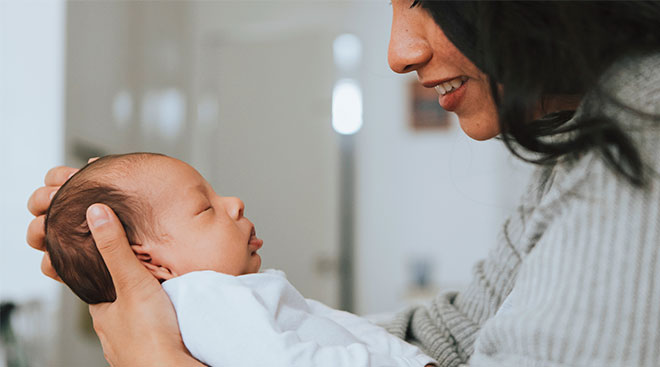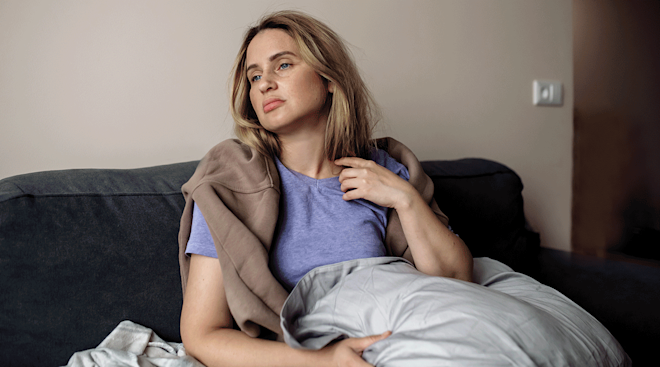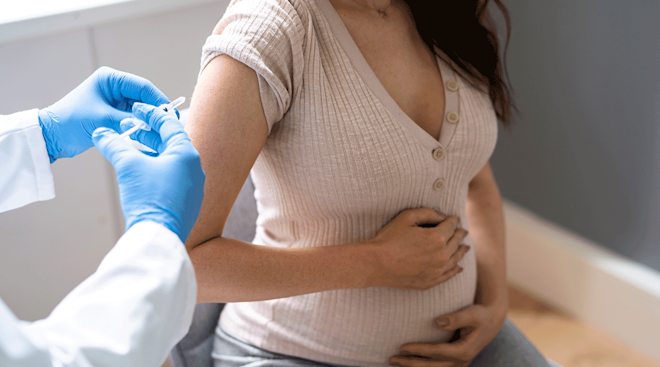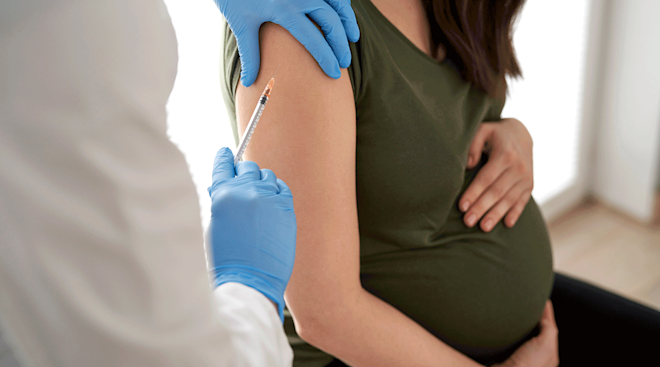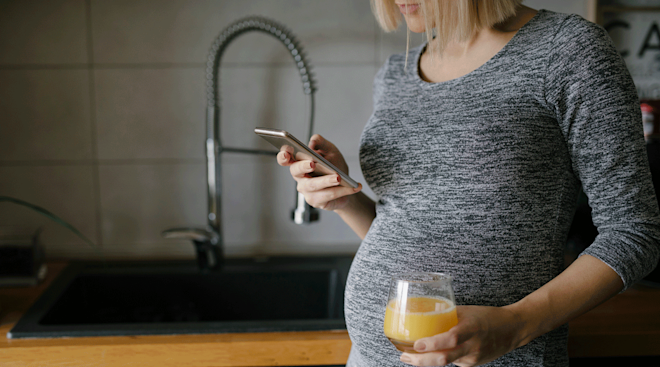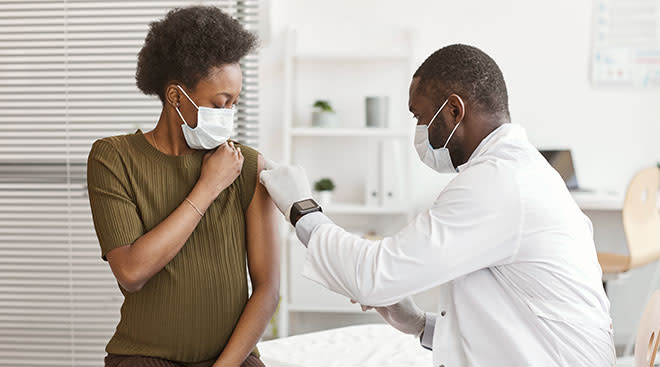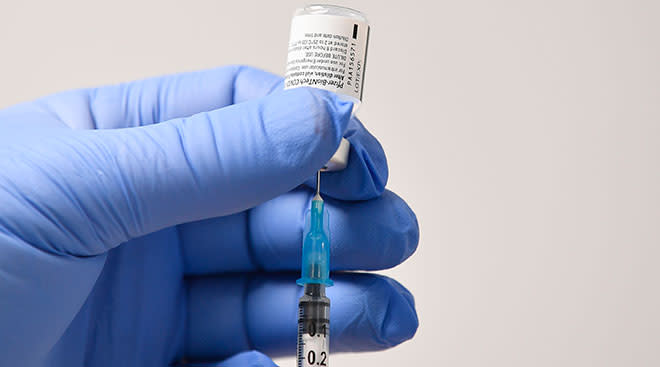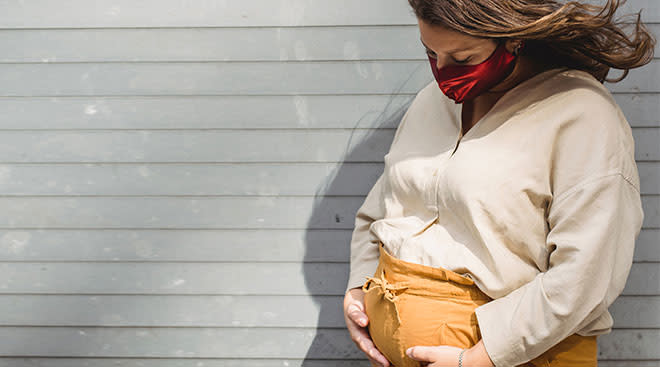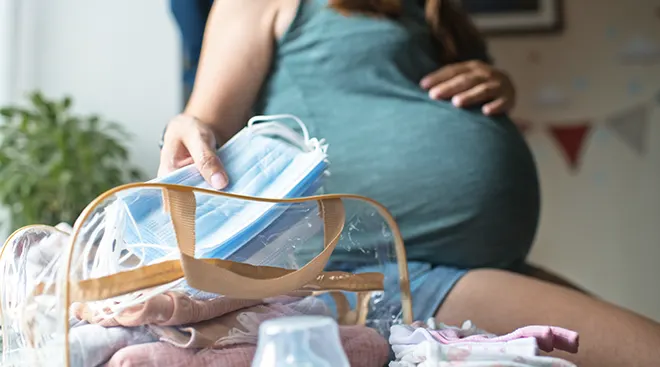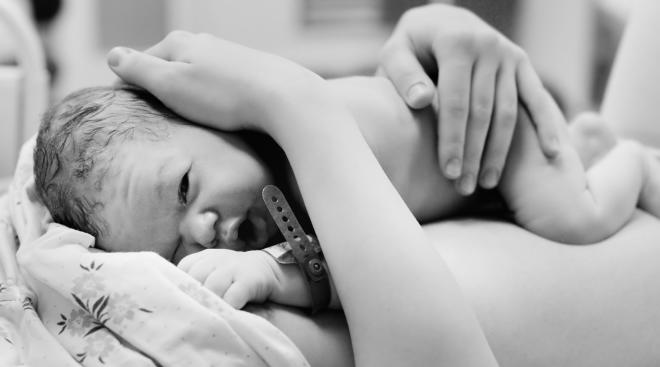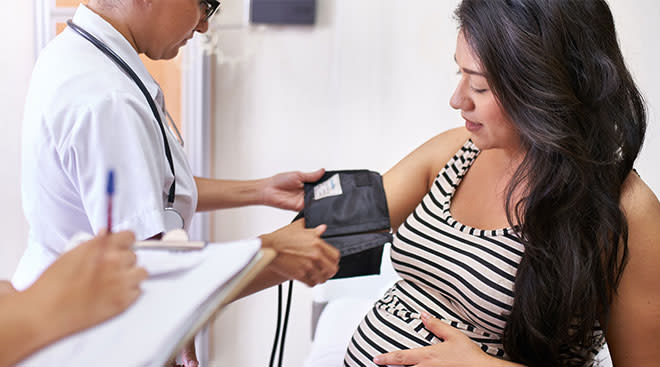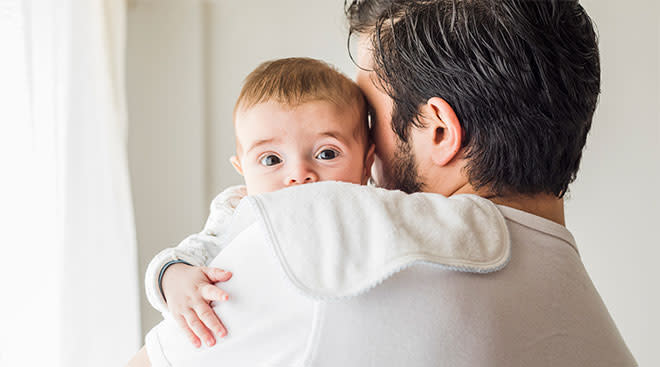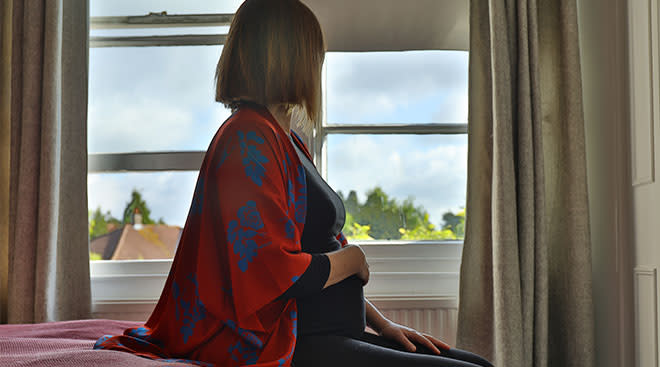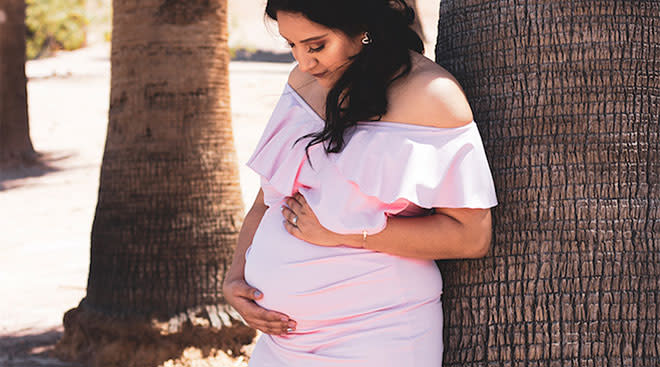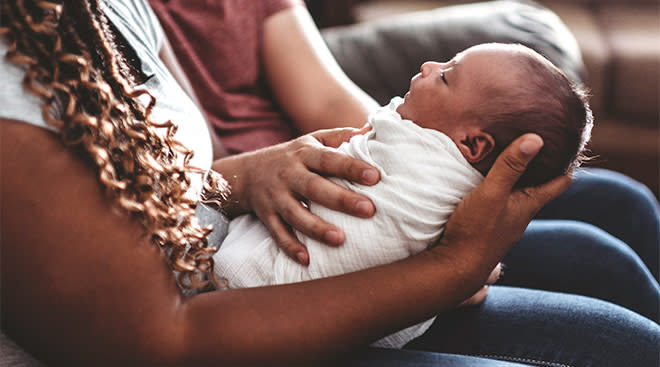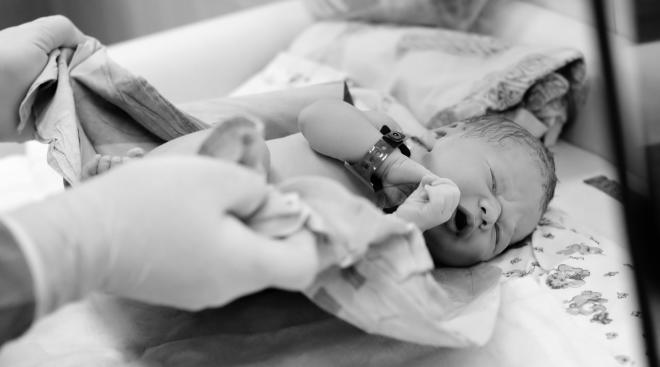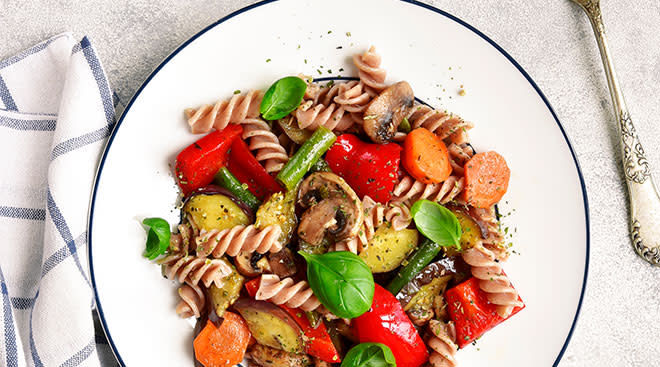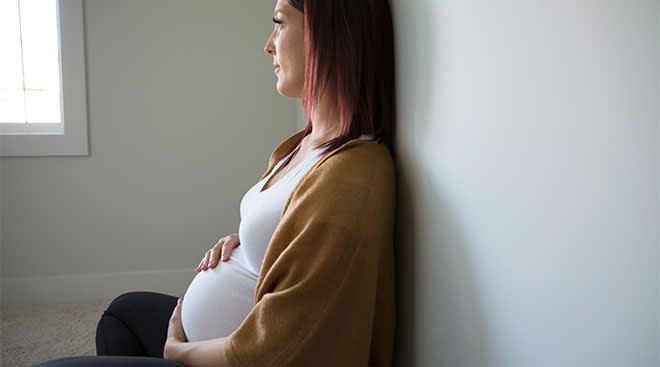Study: COVID-Positive Moms Can Pass Protective Antibodies to Their Newborns
It’s been a long, hard year since the COVID-19 pandemic started, and for pregnant women concerned about their babies, it’s brought on new levels of anxiety. But here’s some good news: According to a recent study published in JAMA Pediatrics, moms-to-be who contract COVID pass antibodies to their babies through the placenta, potentially providing their newborns with some level of immunity against infection.
What Did the Study Show?
Researchers found that SARS-CoV-2 IgG antibodies (which are antibodies that are in the blood after you’ve had an infection and offer protection against the virus) were transferred across the placenta in 72 out of 83 pregnant women who had COVID—both symptomatic and asymptomatic—in a Pennsylvania hospital. Antibodies were not detected in any infants born to mothers who did not have COVID. The researchers also showed that the longer the time between the mother being infected with COVID-19 and giving birth, the more antibodies that were transferred to the baby. Newborns were tested for COVID by nasal pharyngeal PCR between 24 and 48 hours after birth if the mother was PCR-positive and contagious at the time of delivery. Among the infants who were tested, none were found to be positive. SARS-coV-2 IgM antibodies (which are antibodies that may indicate that you’re currently or recently infected) were not detected in any of the 72 infants.
What Does This Study Mean?
While it’s possible for pregnant moms to pass COVID to their babies in utero, this study shows that mother to baby transmission is likely uncommon. Although the researchers don’t know if the amount of antibodies passed to newborns is enough to fully prevent the babies from contracting COVID-19, the study is reassuring that mothers can pass on their protective antibodies. Although more research is needed, this is welcomed news for expectant parents concerned about their newborn contracting COVID after birth from a contagious mother or other members of the household.
What Studies Are Needed Next?
Now that there is research showing that mothers can pass on their antibodies to their babies, additional studies are needed to confirm if SAR-CoV-2 antibodies are indeed protective against newborns becoming infected, and if babies need to receive a certain amount of the antibodies in order to be protected. Also in question is whether pregnant mothers who receive the COVID vaccine pass antibodies to their babies in the same way they would if they contract the virus, as well as when during pregnancy is the best time to receive the vaccine.
About the authors:
Dina DiMaggio, MD, is a pediatrician at Pediatric Associates of NYC and at NYU Langone Medical Center, and serves as a spokesperson for the American Academy of Pediatrics. She has received numerous research awards, along with Patient’s Choice award, compassionate doctor recognition and was featured in the New York Times Magazine as a Super Doctors and New York Rising Star. She and Anthony Porto are coauthors of the book The Pediatrician’s Guide to Feeding Babies and Toddlers.
Anthony Porto, MD, MPH, FAAP, is a pediatrician and pediatric gastroenterologist at Yale New Haven Children’s Hospital and the medical director of the Yale Pediatric Celiac Program. He’s also an associate professor of pediatrics and associate clinical chief of pediatric gastroenterology at Yale School of Medicine, as well as an AAP spokesperson. He has won numerous awards including the Norman J. Siegel Award at Yale University for leadership and providing outstanding clinical care as well as Physician of the Year during his time at Morgan Stanley Children’s Hospital. He has been named Castle Connolly Top Doctors since 2012.
You can follow them on Instagram at @pediatriciansguide.
Please note: The Bump and the materials and information it contains are not intended to, and do not constitute, medical or other health advice or diagnosis and should not be used as such. You should always consult with a qualified physician or health professional about your specific circumstances.
Navigate forward to interact with the calendar and select a date. Press the question mark key to get the keyboard shortcuts for changing dates.
































